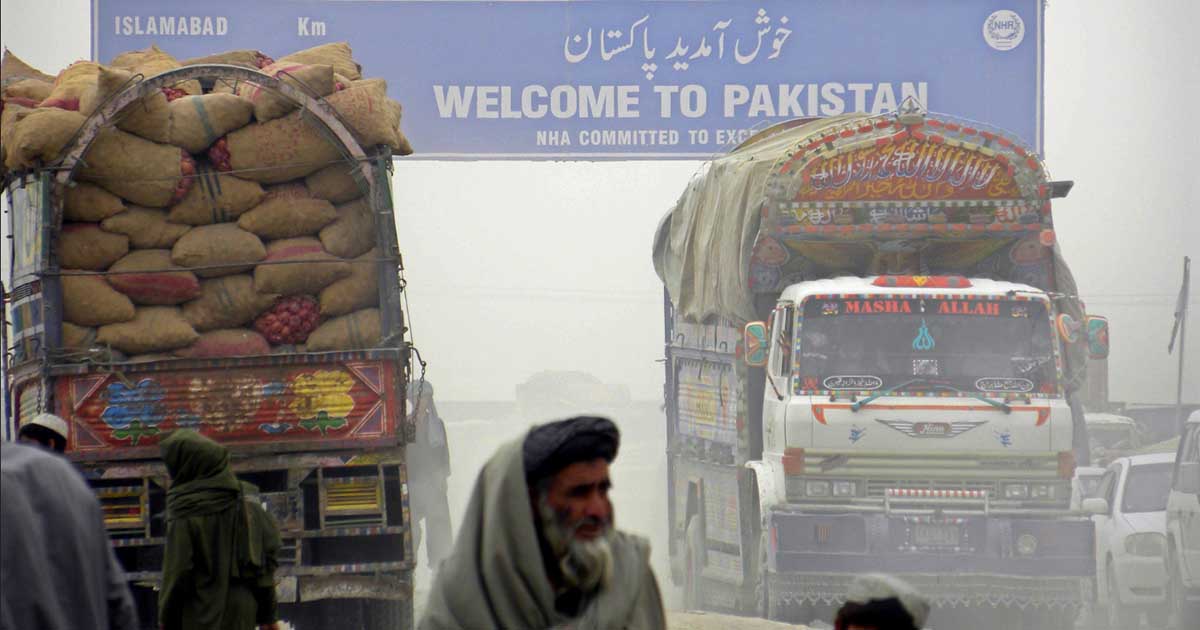News Analysis |
As per a report released by Pentagon, the Afghan exports for the fiscal year 2018 were accounted to be $891 million whereas the import bill stands at a humongous $7 billion, nearly 36% of the entire Gross Domestic Product (GDP) of the country.
The exports are generally carpets, textiles, and dried fruits. On the other hand, due to unfavourable extensive enough terrain for agriculture, followed by perilous law and order situation in the country and frequent droughts, the country must import almost its entire food demand.
Iran restricted the movements of immigrants, confining them to specially established migration camps.
As the country itself is landlocked, it has to rely on air shipment or neighbouring countries, such as Iran and Pakistan, to carry its goods by sea. Due to the closure of airspace by Pakistan after its military standoff with India, Afghanistan has also suffered economically.
Pakistan land routes leading towards ports of Gwadar and Karachi via Chaman and Torkham border crossings provide Afghanistan with a relatively fast and cheap way of transport. But the current regime of Ashraf Ghani, due to political reasons, has avoided Pakistan’s routes and rather decided to use Iran’s Chabahar port instead.
Read more: Bilateral trade with Afghanistan reduced to $500M
Waiver for Afghanistan to trade with Iran
After the United States of America re-imposed the sanctions over Iran, it provided few of its allies, with the waiver, to continue trade with the country. While for rest of the countries the wavier meant the continued purchase of Iranian oil, for Afghanistan it had another positive outcome as it could use Iranian land routes for trade.
Due to the closure of airspace by Pakistan after its military standoff with India, Afghanistan has also suffered economically.
Due to close coordination of Afghanistan and India on multiple fronts in recent years and India’s funding of Chabahar port, the option was readily available for Afghan goods to be shipped via sea. It implies that Kabul is gradually trying to find an alternative trade route as it is embroiled in political chaos with Islamabad, repeatedly due to geographical and national security matters.
Read more: Peace in Afghanistan in interest of Pakistan, Iran: PM Imran Khan
Unemployment a major issue in Afghanistan
One of the major dilemmas, vis-à-vis the future of Afghanistan, is the lack of industries or employment opportunities for its people. Foreign aid is the primary source of overcoming the deficit due to import bulk and a miniscule export column. Pakistan and Iran for decades have been providing employment opportunities for Afghan diaspora but over the past few years the return of Afghan immigrants is also causing a strain on the national economy as there are not enough jobs available.
The United States of America re-imposed the sanctions over Iran, it provided few of its allies, with the waiver, to continue trade with the country.
In this scenario, where nearly 0.7 million Afghans have returned to their homes from Iran and the number is continuously increasing for Pakistan as well, deteriorating trade ties with Pakistan are not in the best interest of Iran. As of March 23, the International Organization of Migration (IOM) reported that 88,516 undocumented Afghans returned from Iran and 4,182 undocumented Afghans returned from Pakistan in 2019.
The huge difference in the ratio of Afghans going back from Iran, as compared to Pakistan, is that the latter allowed them to move around in the country and start businesses of their own. On the hand, Iran restricted the movements of immigrants, confining them to specially established migration camps.
Read more: Crime trumps Terrorism; war-torn Afghanistan problems increases
Due to economic sanctions enacted by the United States of America over Iran, its economy is expected to plummet in the coming years which mean that Afghans would not be finding jobs there too.
As many as 1 million Afghan refugees are expected to be deported to Afghanistan which essentially means that the Kabul government would face further problems providing jobs and facilities to all these people. Hence, instead of going for a policy of confrontation, Afghanistan should look forward to reconciling with Pakistan on multiple fronts, especially economy.














